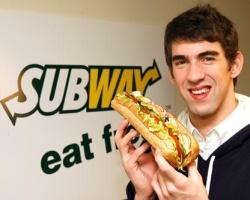A sputtering economy and a spate of superstar scandals are making companies more cautious about having famous faces attached to their products — and about whether they enlist celebrities at all, some marketing and branding experts say.
Olympic swimmer Michael Phelps and singer Chris Brown are the latest stars to see lucrative endorsement deals evaporate after they became embroiled in controversy. And as companies watch every marketing penny in this economy, they are weighing more than ever whether a high-profile name is worth possible damage to their brands and bottom lines if the star misbehaves.
“They are certainly thinking more about the potential risks,” says Ann Green, senior vice president at Millward Brown, which works with more than 80 percent of the top 100 advertisers on how their marketing efforts affect their brands. “In the past few years, we have seen a slight decline in the use of celebrity endorsements and that is in part due to the risk associated as well as the necessary investment.”
In a survey of national ads that aired during this year’s Grammys telecast, brand and entertainment consulting firm GreenLight found that only 7 percent of those not connected to music or films featured a celebrity, compared with 13 percent last year and 21 percent in 2007.
“It’s a considerable drop,” says David Reeder, vice president of GreenLight. With the most popular entertainers and athletes demanding multimillion-dollar deals, hitching your brand to a superstar “becomes a really dicey proposition when you’ve got the economy working against you and these potential land mines sitting out there.”




